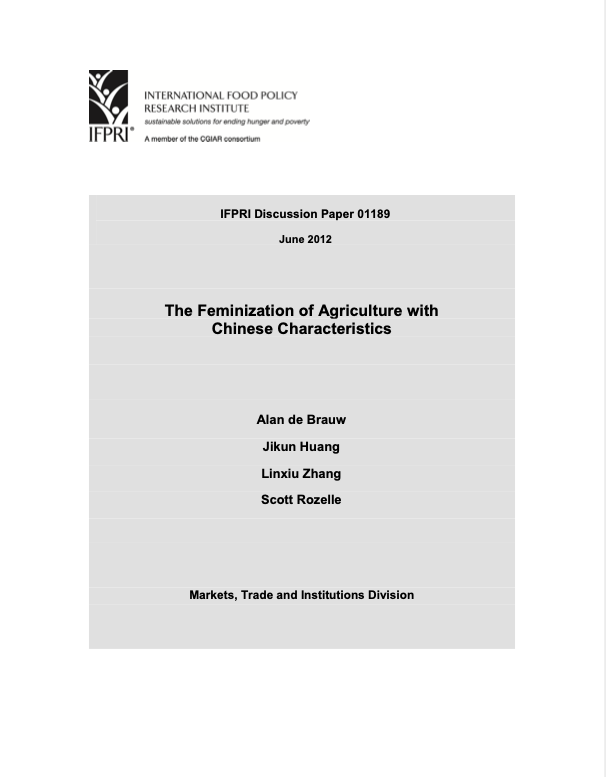Effects of rainfall variability on maize yields
Cropland and pastureland
Opportunities to mainstream land consolidation in rural development programmes of the European Union
Land consolidation can be an important tool for increasing agricultural competitiveness and improving rural conditions. Farmers can become more competitive when they decrease fragmentation and increase the size of their farms, and rural communities can benefit when consolidation projects include components to improve local infrastructure and the environment.
The Feminization of Agriculture with Chinese Characteristics
The objectives of this paper are to help build a picture of the role of women in China’s agriculture, to assess whether or not agricultural feminization has been occurring, and if so, to measure its impact on productivity. To meet these goals, we rely on three datasets that allow us to explore who is working on China’s farms and the effects of the labor allocation decisions of rural households on productivity. We find that since 2000, the role of women has increased both in the supply of farm labor and in the duties that women take on in the management of farms.
The power of WASH: Why sanitation matters for nutrition
Water, sanitation, and hygiene can have a profound effect on health and nutrition. A growing base of evidence on the link between sanitation, child height, and well-being has come at an opportune time, when the issue of sanitation and nutrition in developing countries has moved to the top of the post-2015 development agenda.
East African agriculture and climate change: A comprehensive analysis
The second of three books in IFPRI's climate change in Africa series, East African Agriculture and Climate Change: A Comprehensive Analysis examines the food security threats facing 10 of the countries that make up east and central Africa - Burundi, Democratic Republic of Congo, Eritrea, Kenya, Madagascar, Rwanda, Sudan, Tanzania, and Uganda - and explores how climate change will increase the efforts needed to achieve sustainable food security throughout the region. East Africa's populations is expected to grow at least through mid-century. The region will also see income growth.
The business imperative: Helping small family farmers to move up or move out
How can family farmers best contribute to their country’s agriculture needs as well as broader development goals? First, we should determine which farmers can be profitable and assist them in doing so. Second, for those who aren’t profitable, we need to help them shift to other economic pursuits.
2012 Global food policy report: Overview [in Chinese]
This 2012 Global Food Policy Report is the second in an annual series that provides an in-depth look at major food policy developments and events. Initiated in response to resurgent interest in food security, the series offers a yearly overview of the food policy developments that have contributed to or hindered progress in food and nutrition security. It reviews what happened in food policy and why, examines key challenges and opportunities, shares new evidence and knowledge, and highlights emerging issues.












